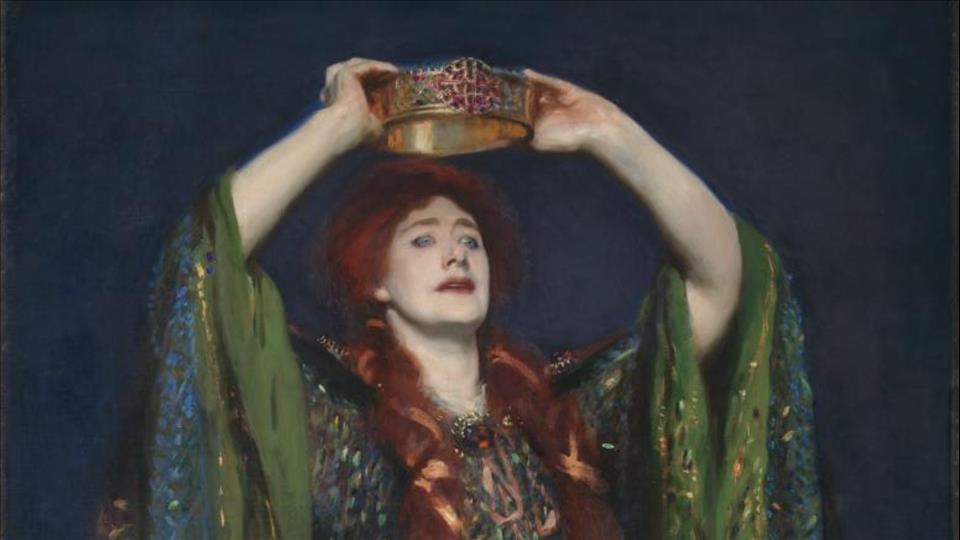
Queen Macbeth By Val Mcdermid: An Invigorating Romp That Cleaves To The Real History Of Macbeth's Wife
Lady Macbeth is one of Shakespeare's most well-known and powerful female characters. She is often seen as a smart, ruthless figure, but one who miscalculates what she can get away with. In her new book Queen Macbeth, Val McDermid takes on this formidable character in a reimagining of Shakespeare's archetypal scheming wife. But McDermid's version is full of surprises.
First, by calling her book Queen Macbeth, McDermid shifts readers' perceptions and emphasises the major historical role that the real-life“Lady Macbeth” played in the complex network of political units making up early medieval Scotland. The second surprise is that McDermid's Queen Macbeth is still alive after the final defeat of her husband's forces. She did not“die hereafter”, as Shakespeare says, after all.
Once you've processed these surprises from the first few pages, prepare for more: Queen Macbeth rousingly plays with Shakespeare and the medieval histories that shaped his play, Macbeth. But it makes a serious point too: what do we really know about Gruoch – the historical wife of the historical Macbeth – and how has her story been hijacked?
McDermid's short, sharp novel does everything it can to upset the narrative we think we know to tell us a magical new story.
Gruoch and her companionsSome of the most famous lines from Macbeth are delivered by the“witches” or“weird sisters”.“Double, double toil and trouble: Fire burn, and cauldron bubble ... By the pricking of my thumbs, Something wicked this way comes.”
McDermid recasts these characters in her tale as Queen Gruoch's companions Aife, Ligach and Eithne, the women who wait on her and run her household. They care for her clothes and wash her, monitor her health and support her political intrigues. Instead of being outcast demonic hags, they are just ordinary women – as McDermid makes clear in this book, she believes all accused“witches” were.
Birlinn Ltd
Aife is a clever baker and Ligach has a knack for taming and handling animals. But it is Eithne who has the most witch-like abilities of the three: she is a seer and herbalist, skilled with not just lavender and rosemary but more politically useful plants like white poppy and henbane , which put talkative mouths to sleep. This is handy because Gruoch starts the novel on the run from her enemies. She needs to escape and travel across Scotland to seek sanctuary with her husband's allies on the Isle of Mull.
The peril of this escape and journey gives the novel its suspense and is cunningly interwoven with flashbacks to Gruoch's earlier life.
An unhappy unionTrue to history, she begins her adult life as the wife of another man – Gille Coemgáin, the Mormaer or Earl of Moray.
It's this first unhappy union, the book testifies, that gives her some of the characteristics we associate with Shakespeare's Lady Macbeth. McDermid's exploration brings new life and meaning to the woman we think we know.
Yes, Gruoch is a clever politician who ruthlessly embraces the possibility of change, but her motivation is as much self-preservation as ambition. Yes, she will have no children with Macbeth (whom she marries after Gille is killed), but that is also explained by her life with Gille – a plot point that draws on established historical fact.
A depiction of Gruoch seeking help from Macbeth. Wikimedia , CC BY
Many real-life, researched aspects of the real Gruoch's story appear in the novel in this way – as interpretations and allusions. I wondered about the historical plausibility of a fugitive queen hiding successfully for years in a barn before embarking on her flight to Mull, but the novel doesn't present itself as a historical textbook, so why not?
And as Gruoch's story goes on, fantastical elements strengthen until a final surprise – and one that I very much enjoyed, because it was completely unexpected. I also liked the repeated echoes of Shakespeare's Macbeth throughout the text. There's lots of courage screwed to the sticking place, and lots of tingling in Eithne's thumbs, as in the play.
Queen Macbeth made me smile. It's not history, but it's not wholly fictional either. It's highly relevant to modern Scotland with a nod to present-day political struggles and the role of women within them.
In the book's acknowledgements, Nicola Sturgeon is credited with resolving a plot point for McDermid, and it was hard not to see in Gruoch a more colourful version of the SNP ex-first minister's story: a female leader pursued as her successors fall out among themselves.
The novel is dedicated to Linda Riley , a campaigner for lesbian visibility and rights, with a wry comment about the routine misrepresentation of women in public life. I enjoyed McDermid's pushy, playful rewriting of Shakespeare and Scottish history in the context of the hurly-burly present.
- Shakespeare Book reviews Macbeth val mcdermid Witches Scottish history Give me perspective

Legal Disclaimer:
MENAFN provides the
information “as is” without warranty of any kind. We do not accept
any responsibility or liability for the accuracy, content, images,
videos, licenses, completeness, legality, or reliability of the information
contained in this article. If you have any complaints or copyright
issues related to this article, kindly contact the provider above.


















Comments
No comment